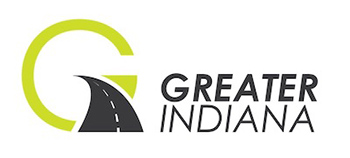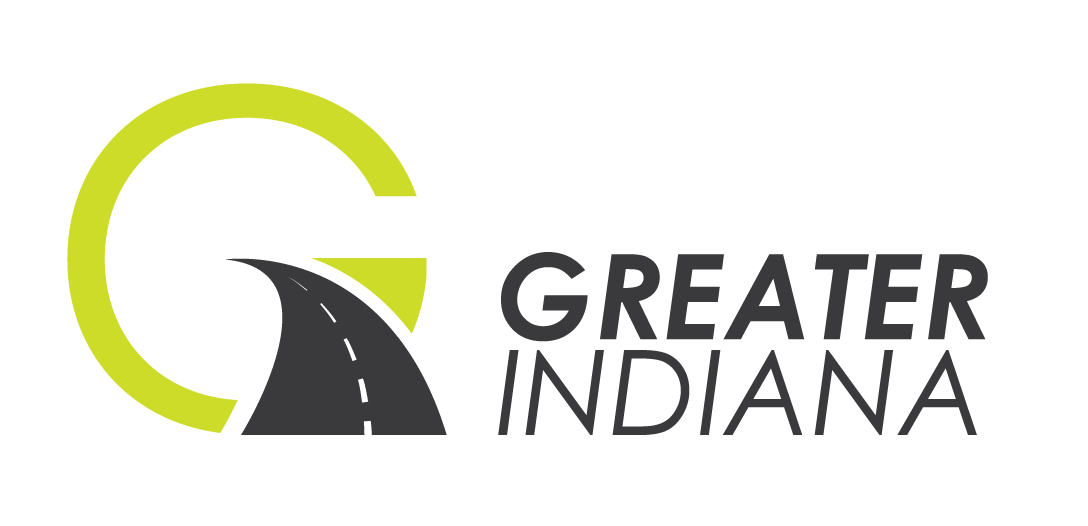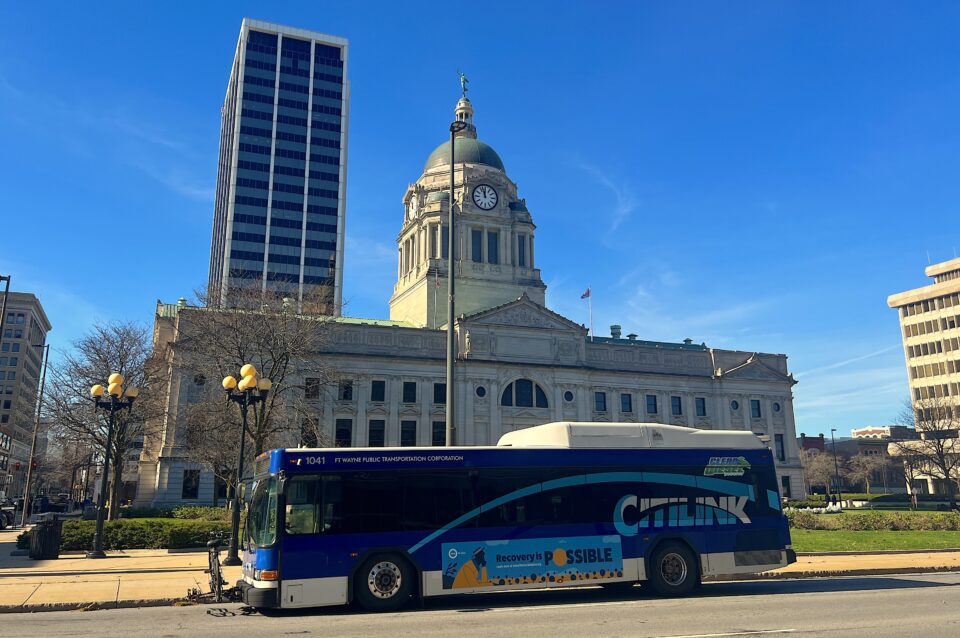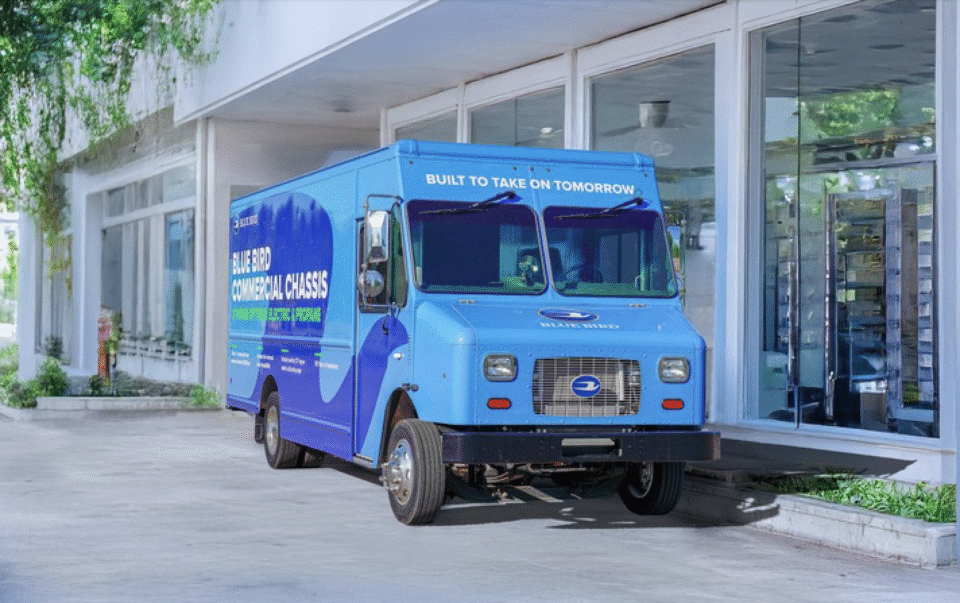3.1 Million Pounds of CO2 Removed with Propane Paratransit Fleet
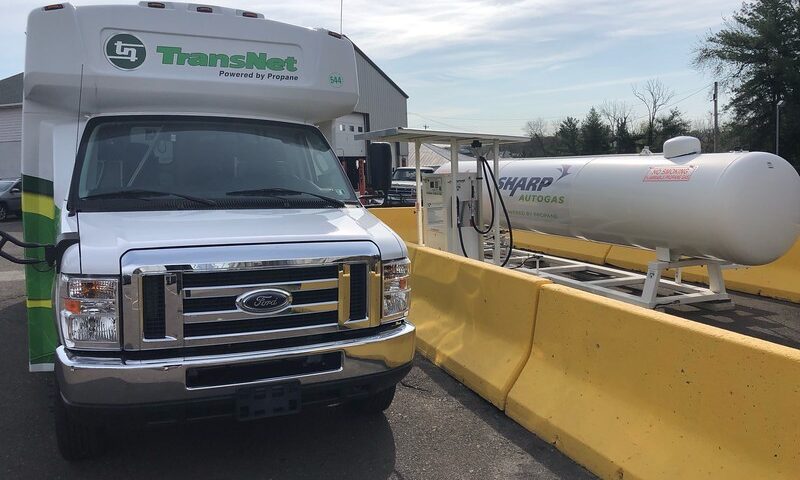
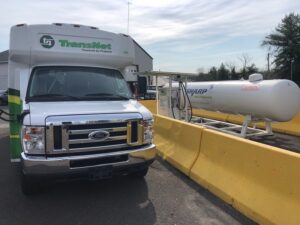
TransNet’s long-term sustainability plan to reduce its impact on the planet is evident in its paratransit fleet. In 2019, the community transportation service started operating shuttles on propane autogas, a clean and low-carbon fuel.
By running propane fleet vehicles, TransNet is eliminating more than 3.1 million pounds of carbon dioxide over the shuttles’ lifetime. Plus, the organization will emit fewer greenhouse gases, smog-producing hydrocarbons, and virtually eliminate particulate emissions versus comparable gasoline-fueled models.
“We take major strides to reduce TransNet’s carbon footprint and lessen harmful emissions, and our clean-operating propane paratransit shuttles are a big part of that effort,” said Susan Kopystecki, executive director of TransNet. “We all have an obligation to protect our planet, on Earth Day and every day.” TransNet has won a number of awards for its sustainability efforts, including the Air Quality Partnership Excellence Award from the Delaware Valley Regional Planning Commission (known as DVRPC).
To understand its alternative fuel choices, TransNet joined Eastern Pennsylvania Alliance for Clean Transportation as part of its sustainability plan. “We compiled a detailed fleet analysis for TransNet that established propane as the most cost-effective option to reduce their carbon footprint,” said Tony Bandiero, executive director of EP-ACT, which assisted in securing $300,000 in funding from Department of Environmental Protection’s Alternative Fuels Technical Assistance Program.
“PennDOT also played a key role in assisting TransNet through the process of adopting propane vehicles and will continue to be a factor with future conversions of new grant vehicles,” Kopystecki adds. “Its dedication to promoting alternative fuel and sustainability throughout the state is commendable.”
TransNet’s paratransit shuttles are used as demand-responsive transportation for its community. In an average (pre-COVID-19) year, each of TransNet’s paratransit shuttles travel almost 25,000 miles to transport aging community members, persons with disabilities, persons on medical assistance, school children and commuters. The organization has a paratransit fleet of 22 Ford E-450 propane vehicles and soon takes delivery of 12 more, all equipped with ROUSH CleanTech propane autogas fuel systems.
“Our Gen 5 propane system integrates the new powerhouse Ford 7.3L engine that is leaner, meaner and greener — making it more compact, more powerful and easier to maintain,” said Ryan Zic, vice president of sales of ROUSH CleanTech. “Plus, ROUSH CleanTech’s E-450 is certified to California Air Resources Board’s optional low nitrogen oxide emissions standard, drastically reducing tailpipe emissions and making it 75% cleaner than the federal standard.”
ROUSH CleanTech Ford E-450 vehicles are undergoing Federal Transit Administration’s New Model Bus Testing Program (“Altoona Testing”), which allows its transit customers to apply for and receive FTA funds to help cover vehicle costs.
Propane autogas is a safe, domestically produced fuel with a robust infrastructure. TransNet partnered with Sharp Energy, a subsidiary of Chesapeake Utilities Corporation, to fuel its fleet.
“Safe and clean propane autogas is the leading alternative fuel for paratransit applications across the nation,” said Steve Whaley, director of autogas business development for the Propane Education & Research Council. “In addition to the environmental benefits, agencies operating propane buses save big on fuel and maintenance — savings that stretch tight budgets and taxpayer dollars.” On average, propane costs about 40% less than gasoline and 50% less than diesel.
ROUSH CleanTech has deployed over 37,000 advanced clean transportation vehicles to fleets across North America. Of those, more than 1,500 operate in the transit industry.
To learn more about ROUSH CleanTech’s advanced clean transportation fleet solutions, visit ROUSHcleantech.com.

Todd Mouw is president of ROUSH CleanTech, an industry leader of advanced clean vehicle technology. Mouw has more than two decades of experience in the automotive and high-tech industries. As former president of the NTEA Green Truck Association, Mouw helped set standards in the green trucking industry. To learn more, visit ROUSHcleantech.com.
